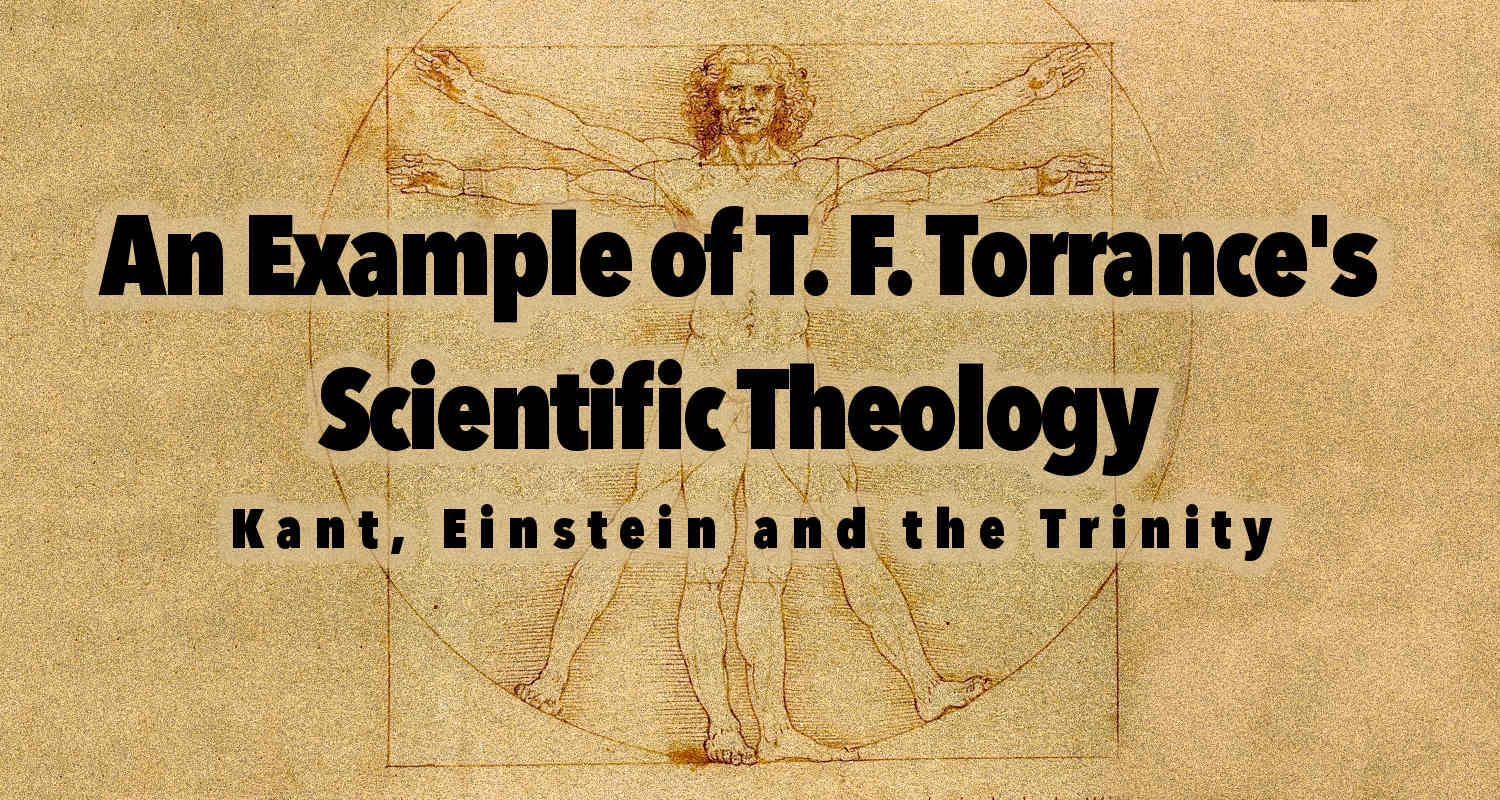 T. F. Torrance is a scientific theologian. In a way, all theology is science, as Karl Barth said at the very beginning of the Church Dogmatics I/1: "As a theological discipline dogmatics is the scientific self-examination of the Christian Church with respect to the content of its distinctive talk about God." (2). In another way, Karl Barth was not a scientific theologian like T. F. Torrance, because he seldom used science to correct his theology, largely due to his rejection of Natural Revelation during Nazi Germany. Barth did develop his own natural theology at the end of the Church Dogmatics but did not sufficiently employ it. Torrance understands the weight of Barth's protests against Natural Revelation, but he also effectively used science throughout his theology (unlike Barth).
T. F. Torrance is a scientific theologian. In a way, all theology is science, as Karl Barth said at the very beginning of the Church Dogmatics I/1: "As a theological discipline dogmatics is the scientific self-examination of the Christian Church with respect to the content of its distinctive talk about God." (2). In another way, Karl Barth was not a scientific theologian like T. F. Torrance, because he seldom used science to correct his theology, largely due to his rejection of Natural Revelation during Nazi Germany. Barth did develop his own natural theology at the end of the Church Dogmatics but did not sufficiently employ it. Torrance understands the weight of Barth's protests against Natural Revelation, but he also effectively used science throughout his theology (unlike Barth).
The discoveries of modern science are ineffable and it is irresponsible to ignore scientific knowledge today. For instance, Barth's Doctrine of Creation has virtually no references to Darwin or other scientists, and this is an absolute poverty. Torrance has written several books on science and theology, including Space, Time and Resurrection, Space, Time and Incarnation, etc. and he continually employs scientific discoveries throughout all of his theological works. So Torrance is an exemplar Barthian theologian that provides us a pattern for utilizing science in theology for the benefit of the Church's self-examination (as Barth said).
In The Mediation of Christ, there is an excellent example of T. F. Torrance's utilization of scientific knowledge within his theological writings that provides a helpful pattern for theologians to imitate today. In the following example, Torrance uses Albert Einstein's General Theory of Relatively to critique Immanuel Kant's Transcendental Idealism, in order to uphold the homoousion of Nicene Trinitarian theology. Torrance's critique of Kant by way of Einstein is a helpful example of using scientific knowledge to improve the Church's distinctive talk about god.
In The Mediation of Christ, T. F. Torrance writes:
The problem to which Martin Buber pointed in his criticism of modern Protestant theology is one that arises out of the dualist metaphysics of Immanuel Kant in his radical distinction between things in themselves and things as they appear to us, and thus in his thesis that we cannot know things in their internal, but only in their external, relations. That is why Kant held that what we call the laws of nature are not derived from the inherent rational structures of nature but are imposed by us externally upon nature. However, that conception of knowledge has been comprehensively demolished by one of the greatest Jewish thinkers of our times, Albert Einstein, not least in the profound revolution in knowledge brought about by the theory of general relativity. In it he cut behind and destroyed the dualist ways of thinking within which Kant and the Enlightenment operated, for in no authentic scientific inquiry can empirical data be interpreted in terms of a preconceived and independent system of ideas. He showed that at every level of nature and of human knowledge rational and empirical elements are inseparably integrated, so that authentic knowing in any field of inquiry is established only through penetrating into its internal relations and bringing them to adequate expression.
We are not concerned here with the implications of all this for scientific knowledge of the world of space and time, but it is worth noting that this Einsteinian correction of the theory of knowledge cannot but have the effect of undermining the dualist patterns of thought that led to the isolation of the doctrine of the triune God from the doctrine of the one God. In fact it reinforces the unitary way of thinking which was established in Christian theology through the formulation of the Nicene homoousion which overthrew the dualist ways of thinking dominant in the Hellenistic culture of the ancient world, and made room for the formulation of Christian doctrine of the Holy Trinity. It is to be hoped that Einstein's contribution to the nature of all rational and scientific knowledge may help Jewish and Christian approaches to the doctrine of God at least to draw closer to one another, if only in their rejection of any dualist split between God as he is in himself and God as he appears to be in his revelation. [2]
Sources:
1. Karl Barth, Church Dogmatics: The Doctrine of the Word of God, Volume I, Part 1, trans. G. W. Bromiley, ed. G. W. Bromiley and T. F. Torrance. (London, New York: T&T Clark, 2004), p.
2. Thomas Forsyth Torrance, The Mediation of Christ, (Helmers & Howard Publishers; Revised edition: 1992), pp. 122-123
3. Background image of The Vitruvian Man (c. 1485) Accademia, Venice (source: wikipedia)



Leave a comment